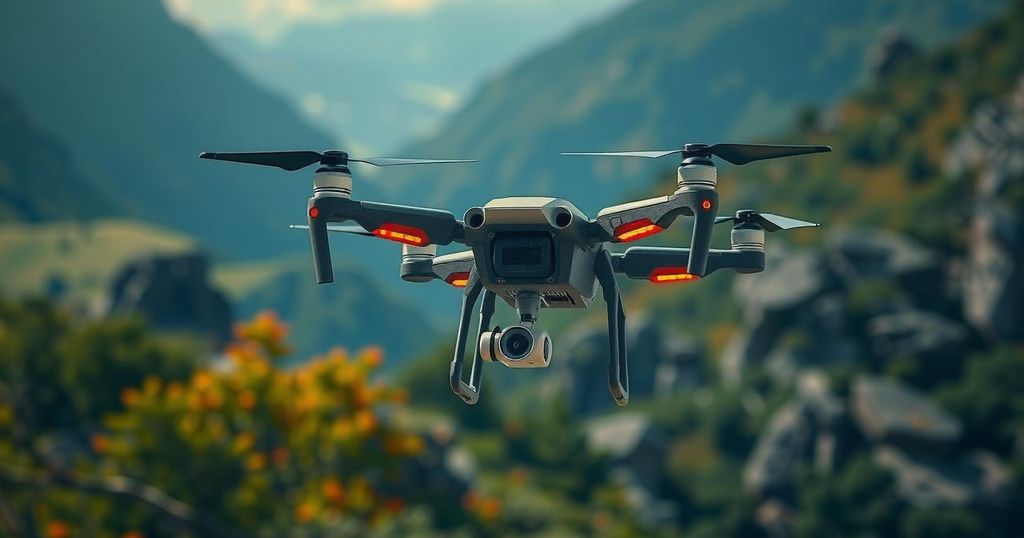The Combat Climate Change UAV Project: A Swedish-Colombian Initiative
The Combat Climate Change (C-3) UAV Project is a collaborative initiative between Sweden and Colombia, launched to advance climate research through the use of specialized unmanned aerial vehicles (UAVs). This project aims to gather data on greenhouse gas concentrations and monitor key ecosystems, integrating findings into predictive models to better manage climate change. The venture underscores the commitment of both nations to technological innovation and environmental protection.
In an ambitious endeavor to tackle climate change, a collaborative initiative has been established between Sweden and Colombia. The Combat Climate Change (C-3) UAV Project, unveiled at COP16, is a concerted effort involving the Minister for Climate and the Environment of Sweden, the Minister of Science of Colombia, Saab, EAFIT University in Colombia, and KTH Royal Institute of Technology in Sweden. The primary objective of this project is to enhance climate research through advanced technology. The project has successfully produced an unmanned aerial vehicle (UAV) specifically designed for extensive data collection pertinent to climate monitoring. This innovative aircraft is outfitted with specialized sensors capable of measuring greenhouse gas concentrations, including carbon dioxide and methane, as well as detecting other pollutants and aerosols present in the atmosphere. Additionally, the UAV is tasked with evaluating the health of vital ecosystems such as the Amazon rainforest and agricultural areas, identifying shifts in vegetation patterns and soil conditions. The acquired data from the UAV will be correlated with ground imagery, supplementing existing satellite information. Ultimately, this initiative aims to integrate these measurements into large-scale mathematical and AI-based predictive models to enhance comprehension and management of the intricacies of the global climate system. Romina Pourmokhtari, the Minister for Climate and the Environment of Sweden, stated, “We are pleased to announce this landmark initiative, which not only exemplifies the robust cooperation between Colombia and Sweden but also celebrates our shared commitment to technological innovation for environmental protection and monitoring.” Furthermore, Yesenia Olaya, Colombia’s Minister of Science, emphasized the significance of the project in addressing climate change, stating, “Contributing to mitigating climate change is one of the priorities of President Petro’s government and with the project announced today we move forward towards this goal that is of vital importance for all.” Since February 2023, engineers from KTH Royal Institute of Technology and EAFIT University have collaborated in the design and construction of this UAV, marking a significant opportunity for international cooperation in research engineering. Saab has played an advisory role in this undertaking, promoting the Triple Helix model by aligning scientific, societal, and economic interests in the project.
Climate change poses a significant threat to ecosystems and humanity as a whole. In response to this pressing issue, various countries are seeking innovative technological solutions to monitor environmental health and facilitate research efforts. The collaboration between Sweden and Colombia exemplifies a proactive approach, leveraging unmanned aerial vehicles (UAVs) to gather vital data that can inform policy and scientific understanding. This project not only signifies technological advancements but also showcases the strength of international partnerships in addressing global challenges.
The Combat Climate Change (C-3) UAV Project represents a significant step forward in integrating advanced technology into climate research. The collaboration between Sweden and Colombia highlights the importance of international cooperation in combating climate change. By utilizing UAVs equipped with specialized sensors for data collection and analysis, stakeholders aim to enhance understanding of environmental changes and devise effective strategies to mitigate the impacts of climate change. The project stands as a testament to the power of innovation and collaboration in sustainable development efforts.
Original Source: www.saab.com




Post Comment